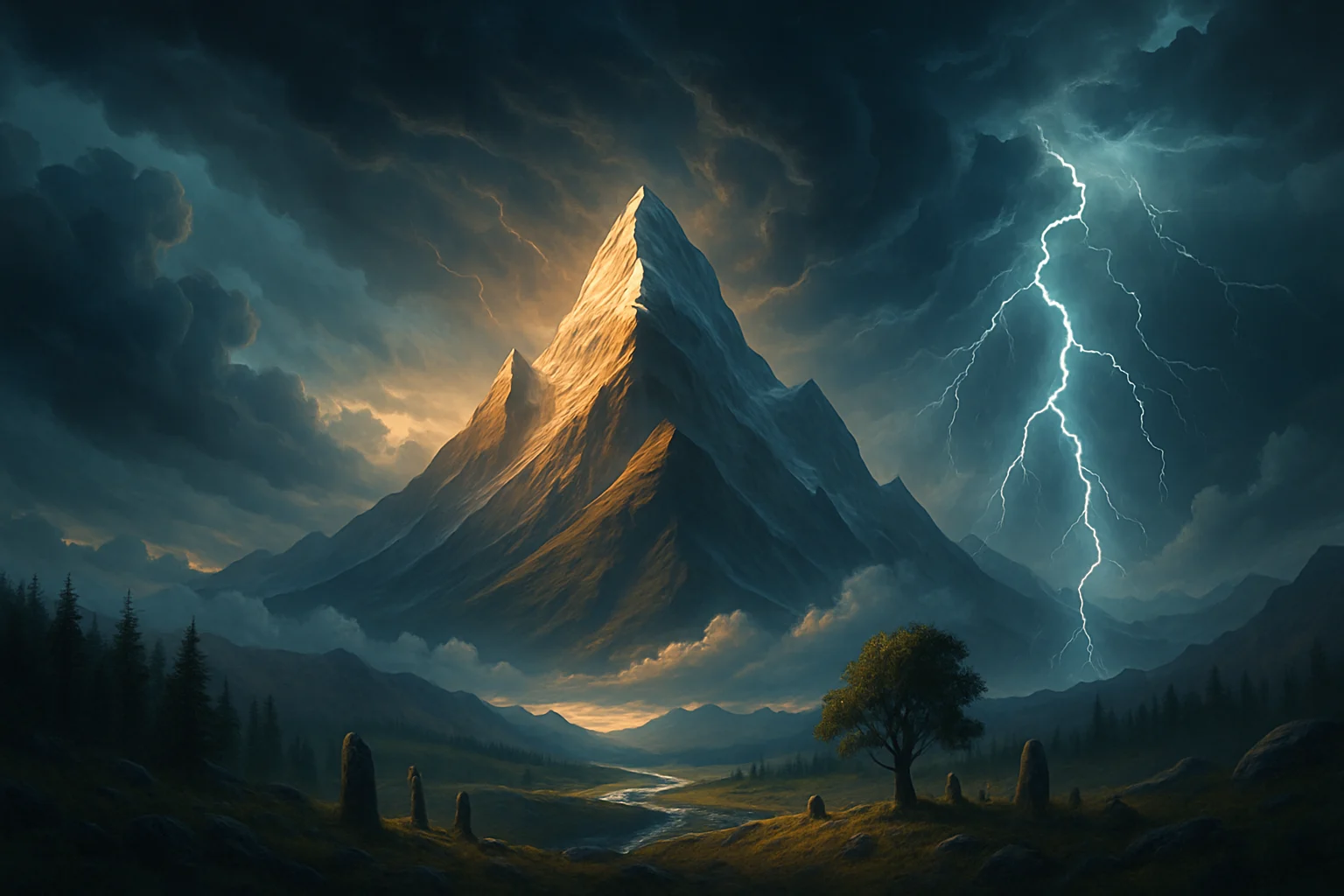Torgrism
Torgrism is an animistic and shamanistic belief system that has evolved over centuries among the nomadic peoples of The Tear.
Torgutian religion, often referred to as Torgrism or Torgutian shamanism, is rooted in the beliefs and practices of the Torgutian people. It involves the worship of various deities and spirits associated with nature, the sky, and the elements.
While specific details about Torgutian gods can vary, here are some key figures commonly recognized in Torgutian mythology:
- Torgi: Torgi is the supreme god of the Torgutian pantheon, often associated with the sky and heavens. The word "Torgi" itself means "heaven" or "sky" in Torgutian. Torgi is considered the creator of the universe and is a central figure in Torgutian cosmology.
- Aaj Khal (Mother Earth): Mother Earth is another important deity in Torgutian mythology, representing the nurturing and life-giving aspects of nature. She is often associated with fertility and the well-being of the land.
- Orlik Khan: Orlik Khan is a deity associated with the underworld and is considered the lord of the spirits of the deceased. While not a benevolent figure, Orlik Khan plays a crucial role in the afterlife, judging the souls of the deceased.
- Jeser Khan (Chinggis): Jeser Khan, also known as Jeser or Chinggis Khaan, is a legendary hero and a central figure in Torgutian epic literature. He is often considered a cultural hero and a unifier of the Torgutian people. While not a god in the traditional sense, Jeser Khan holds a significant place in Torgutian mythology.
- Purkhan Khaldin: Burkhan Khaldun is a sacred mountain in The Tear and is considered a holy place in Torgrism. The mountain is believed to be the dwelling place of various deities, and rituals and ceremonies are often conducted there.
It's important to note that Torgutian mythology has a rich oral tradition, and the specifics of the pantheon and stories can vary among different Torgutian tribes and regions.
☆★☆★☆★☆☆★☆★☆★☆☆★☆★☆★☆☆★☆★☆★☆
Torgi, the supreme god in traditional Torgutian religion, is central to Torgrism or Torgutian shamanism. The term "Torgi" means "sky" or "heaven." Torgi is the eternal blue sky, and worship of Torgi is central to the spiritual beliefs of the Torgutian people.
Key aspects of Torgi in Torgutian mythology include:
- Creator of the Universe: Torgi is believed to be the creator of the universe, responsible for bringing order and harmony to the world. The sky, as represented by Torgi, is considered a sacred realm.
- Spiritual Connection: Torgi is associated with the spiritual realm and is considered a benevolent and powerful force. The eternal blue sky is seen as a manifestation of divine power, and Torgrism involves a close connection between the earthly and spiritual realms.
- Cosmic Balance: Torgi is often associated with the concept of cosmic balance and order. The belief is that by maintaining harmony with nature and the spiritual world, individuals and communities can ensure prosperity and well-being.
- Shamanic Practices: Torgrism involves shamanic practices, with shamans serving as intermediaries between the human world and the divine. Shamans communicate with Torgi and other spirits to seek guidance, healing, and protection for the community.
- Sacred Spaces: Certain natural features, such as mountains, rivers, and trees, are considered sacred in Torgrism. These locations are believed to be inhabited by spirits and serve as places for rituals and ceremonies.
- Domains: Freedom, Travel, Beasts.
- Symbol: A wind-blown feather or galloping horse.
- Beliefs:
- Reverence for nature and animals, particularly horses.
- Emphasis on freedom and movement.
- Reverence for nature and animals, particularly horses.
- Blessings for horses and riders before significant journeys or battles.

